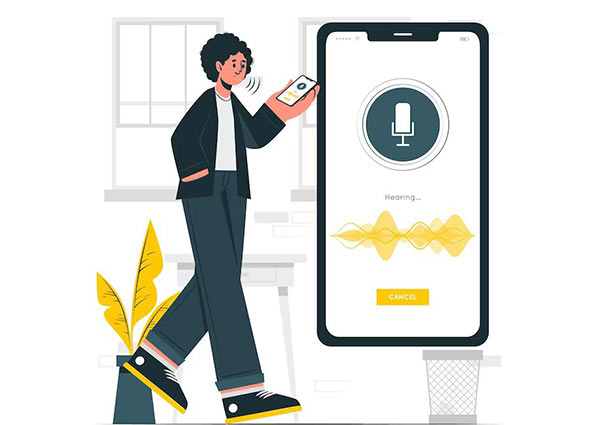Every business in 2023 is looking to expand itself. Scalability has become one of the major factors that businesses and investors look for. And it is a good idea as well; multi-location business help in multiplying your revenue and making your brand popular amongst the masses. If a business is spread to multiple locations, customers get trust and confidence in the brand. Whenever we see a known brand having multiple locations, the first thought is that it is a huge business.
Even though having a multi-location business has many upsides, managing multiple stores is a headache. From Rent to marketing, everything becomes multiple folds difficult. A significant aspect that becomes extremely complex is SEO. SEO is challenging, so imagine doing it for all your business locations. But SEO is something that we can’t ignore as without SEO; our website is not going to get ranked on search engines like Google.
Why is local SEO the way to go for Multi-location business?
In multiple-location businesses, the most effective strategy of SEO is Local SEO. For those who don’t know what Local SEO is, Local Search Engine Optimization is optimizing a website according to the local audience and not entirely nationwide. A question that arises in everyone’s mind is why one should choose Local SEO as National SEO has more Audience and can more sales and revenue.
Well, things don’t go the way it looks like on paper. And in online business, the key is to target a specific audience, whether of a specific age group, location, gender, or any other distinctive factor, because when we try to target a specific audience, our chances of getting ranked vastly increase.
We can understand this better through an example. Suppose you live in Saket; Saket is a locality in Delhi, the capital of India. Now, you want to go to the best bakery and have a cake, so what will your search be like between the two Best Bakery in Saket, or Best Bakery in India
Most of us will select Best Bakery in Saket because we live in that region, and what matters to us is the Best Bakery in our locality, not the best bakery in the country, because it might not be possible to get a cake from such farther distance. This explains how crucial Local SEO is for the growth of a brand.
One out of two searches on Google are local, so you can get more sales by targeting the local Audience than the nation. Currently, only 35% of businesses believe that Local SEO is important, which makes the space less competitive and allows you to flourish.
By optimizing Local SEO for multi-location businesses, you get closer to the target audience, and a connection is built between the brand and its consumers. Suppose you are planning to open a multi-location business or already have a chain of multiple locations for your stores. In that case, you should master Local SEO to achieve incomparable success. We all know that Local SEO is the most preferred method for optimizing Your Online Presence for Local Success. Let’s explore the techniques that can help us achieve domination in Local SEO for our multiple-location businesses in 2023.
Implementing Location-Specific Landing Pages
Even though it might look like a mighty task, it is the basic that you can’t go wrong with. Having specific location pages for each of your stores is a must.
In all your specific landing pages, emphasize the location’s name to be visible to the user. Try to have it in the title and, if possible, in the description. To make your landing pages stand out and bring purpose to the customer, you can add a location address and embed the Google map location of the store on the landing page. For a customer having a Google map location of a brick-and-mortar store is no less than a blessing.
You can also add store-specific details related to the location, such as contact details, social media profiles of your store for that region, and anything else that you find suitable for a location-based landing page. Location pages facilitate a personalized user experience, improving search rankings for relevant local queries.
Target Location-specific Keywords
Keyword Research is one of the primary aspects of SEO. The focus is to find keywords that people are looking for. By mentioning these keywords, you can get ranked on the search engine. This all sounds like a plum, but it is easier said than done, and with the increasing competition, everyone is fighting to get top rank in the search result of critical keywords.
You can save yourself from all the hassle and use keywords that are region specific. This is a simple task, but sometimes it’s shocking how much it affects traffic.
You need to add the name of the Place in your title or description so that you can make it to the top-ranking page whenever someone searches for the product for that location. Any average business gets 25% of its traffic through local searches, so try to prioritize local keywords whenever you are researching for them, as they can help you gain more leads.
Embracing the Rise of Voice Search
More than 71% of users prefer using their voice for search rather than typing their query. A significant reason for this is the rapid improvement in the voice assistants like Siri, Google Assistant, and Alexa. Websites with high domain and link authority are more likely to rank higher in the voice search.
You need to be in the top 3 searches to be preferred by the voice assistant. Find long tail keywords and question keywords to enhance your local SEO for your multi-location businesses. Whenever we talk to a voice assistant, most queries start with who, what, when, where, why, and how. So try to capitalize on these words.
You should remember that we don’t professionally talk to voice assistants; instead, it is a very casual and informal conversation. So make sure that the Content on your website is conversational. Try to use words like me, you, we, and I. Stay away from using technical language that the regular public can’t understand. You want to attract them, not demean and demotivate them with your technical jargon. Voice assistants usually ignore such Content as it doesn’t go well with their style of answering.
Create Content dedicated to the location
One major mistake that every multiple-location business makes is using the same Content for all their different location pages. This laziness proves very costly as the search engines don’t promote duplicate Content. You can’t just write one blog and expect it to be helpful for all locations. While writing content, try to add value to the life of the reader of that specific location. Write freshly brewed and unique Content for each location, emphasizing the language and style of writing relevant to that location’s Audience.
So, you can’t use phrases that people in only Mumbai are familiar with in Content for the location of Delhi. While reading your Content, the user should feel that you have appropriate knowledge of that area, so look to keywords that are relevant to that location and smartly use them.
Make local Backlinks
Backlinks are one of the top 3 factors that determine the ranking of a website on Google, so we all know how serious business is. Backlinks from renowned and popular websites can help increase your website’s domain and page authority, allowing it to rank higher. But does one need to have local Backlinks for multi-location business?
Well, the answer to that question is a big Yes. Whenever the user searches for something local, the essential thing that is part of the query is the location, so if your business is not ranking in the local search, then it will not be able to generate leads.
There are a lot of ways you can get quality local backlinks. You can write guest posts for local businesses, collaborate with other local businesses, partner with local influencers, and post about your locations in the local press. Whenever you are sending on promotion or backlink, make sure you try to cater to the Audience near your location; otherwise, all your money spent will go in vain because even though the customer is ready to buy your product, you don’t have service on that location.
Generating Local Backlinks can be an enormous task because you will have to do it separately for each page, but it is worth the effort and will give you a far ahead advantage over your competitors.
Mobile Optimization
With the increasing use of mobile devices for local searches, multi-location businesses must prioritize mobile optimization. Ensuring their mobile-friendly website loads quickly on smartphones and tablets is essential for a positive user experience and higher local search rankings.
Leveraging Google My Business (GMB) for Each Location
Google My Business, to date, remains one of the best tools to excel in Local SEO. More than 64% of users use Google My Business to get contact information and details about any nearby business. Speaking of nearby, the ‘nearby searches’ have increased by more than 200% in the last 2 years.
So by not creating Google business profiles for all your locations, you are missing an opportunity to get noticed and viewed by your potential Customers.
One out of two online businesses state that their contact details at Google My Business were wrong; you can imagine what a nightmare it will be if the customer wants to contact you but fails to because of incorrect details.
The Google My Business page allows the business to upload photos and videos. So by uploading photos and videos specific to that location, you can gather many views.
You can also link your Google business profile to your Google map location so that customers can swiftly visit your physical store after searching for their query.
The best part about the Google My Business program is that it is free, so you can get closer to your target audience by not paying a single penny.
Generating Positive Local Reviews
90% of searchers read reviews before purchasing any product. This data itself speaks about how crucial customer reviews are for multi-location businesses. Customer Reviews give credibility to your website and also add a human touch. Every business, especially multi-location business, should focus on providing top-class services to their customers so that when they leave, the first thing they do is write a positive review about your website, which will significantly help in boosting the image of your brand in all your locations.
Responding to positive and negative reviews showcases the brand’s commitment to customer satisfaction and improves local SEO credibility. More than 20% of customers who write reviews on your page look for a reply from your side, so make sure you answer all the reviews and appreciate the customer for their valuable feedback.
Structured Data Markup
Implementing structured data markup, such as schema.org, helps search engines understand the context of a business and its various locations. This markup enables search engines to display rich snippets in search results, providing users with additional information, such as operating hours, reviews, and contact details, directly in the search results.
Conclusion
Local SEO remains a cornerstone for the digital marketing strategy in the densely competitive online market as a multiple-location business. Whether it is embracing the latest trends, optimizing for voice search, leveraging Google My Business, implementing location-specific strategies, or optimizing your website for mobile, all of the above strategies will help you outshine your competitors and attract local customers that will make your business reach to a vast audience and achieve new heights. Local SEO in 2023 is about providing personalized experiences, meeting user expectations, and staying ahead in the ever-evolving digital landscape.



